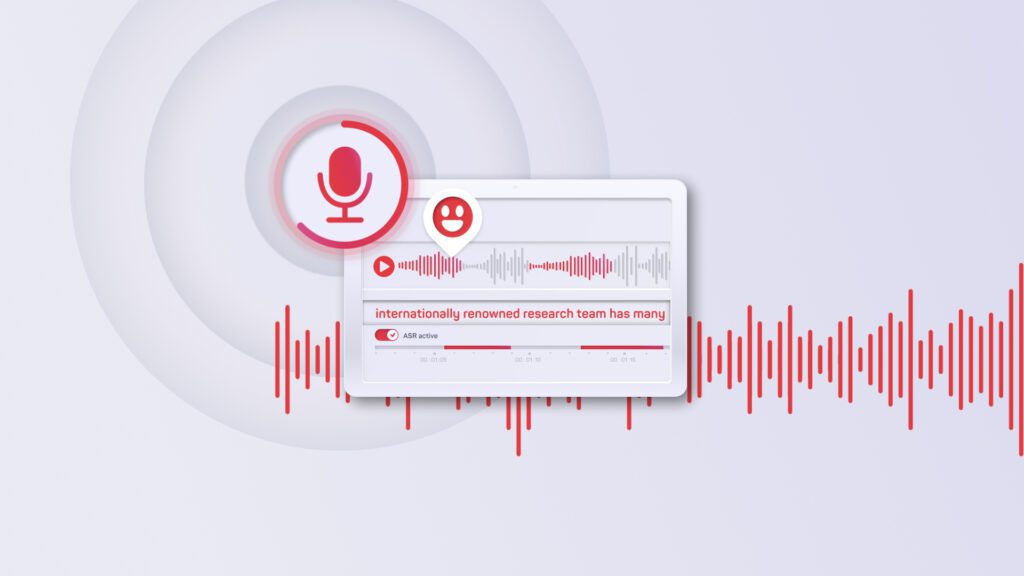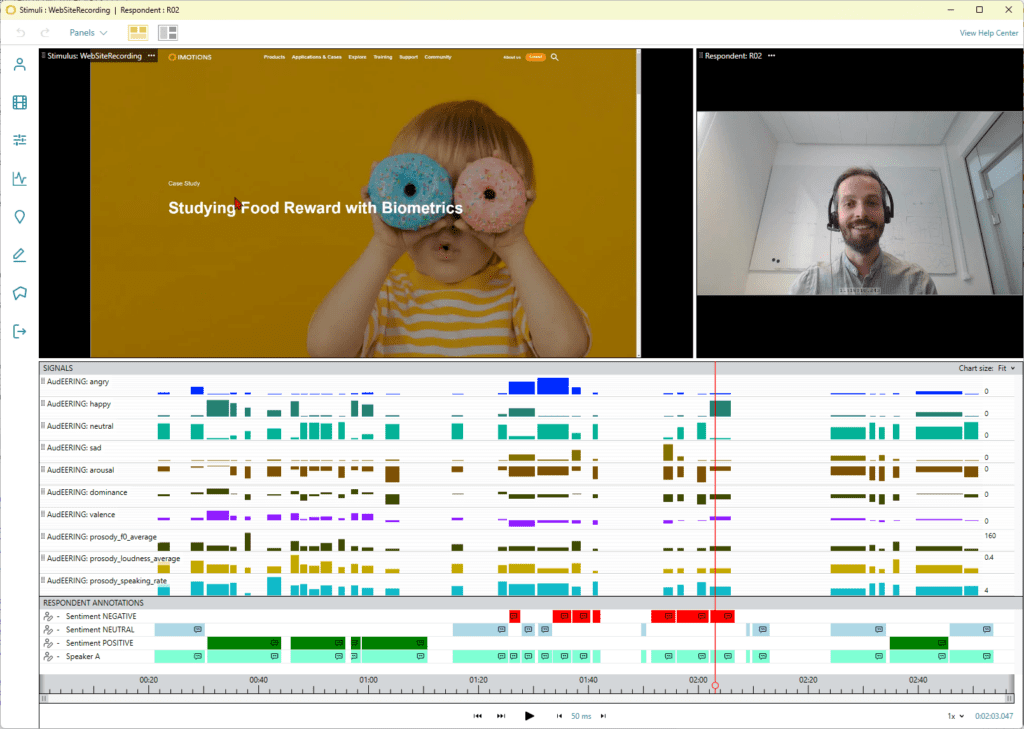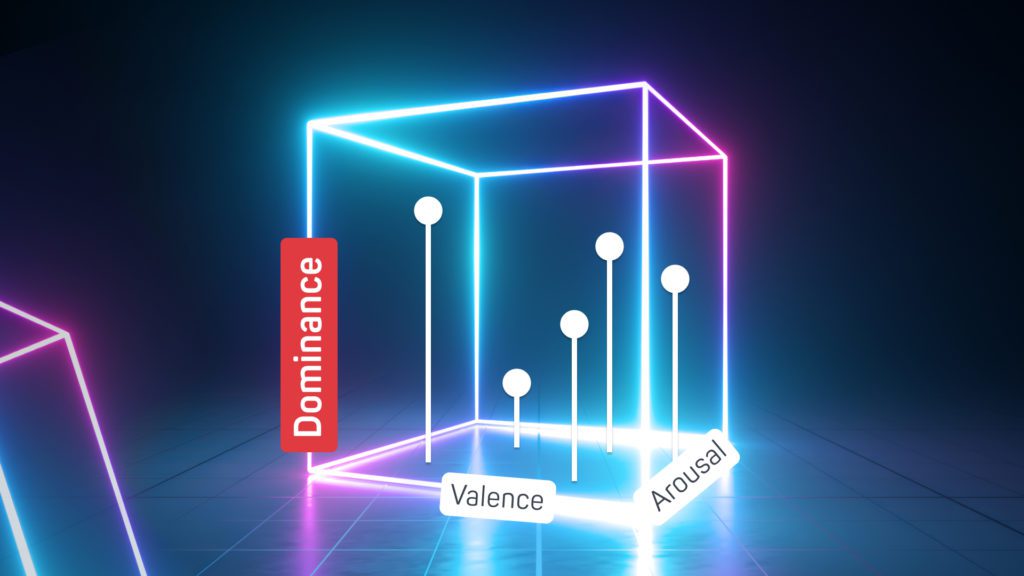Enhancing Communication with devAIce® ASR Module

The automatic speech recognition module from audEERING® is not just an addition to its technology range, but a decisive advance based on the fusion of ASR and vocal expression recognition. This promises to revolutionize the way we interact with machines via natural language.
Revolutionizing Expressive Intelligence with the Open-Source Expression Model – Closing the Valence Gap

Continuing our commitment to open innovation, audEERING® has made the expression model freely available on Hugging Face, which has been downloaded more than 3 million times in two years.
Press Release: audEERING and iMotions collaborate to refine human behavioral research

audEERING, the German market leader for AI-based audio analysis, is cooperating with iMotions, the world’s leading provider of software for interdisciplinary research into human behavior, to expand measurement and analysis areas in human science research. With the integrated voice AI component, the multimodal software suite takes on another dimension that provides insights into human behavior.
devAIce® Web API 4.2 & 4.3 Updates – Exciting Additions to audEERING’s Web API

Following the recent SDK updates, we are thrilled to announce the latest enhancements in the devAIce® Web API versions. These updates bring a host of new features and improvements to empower developers in leveraging the full potential of our advanced technology. Let’s explore the exciting additions in devAIce® 4.2 and 4.3.
devAIce® SDK 3.8 and 3.9 Updates – New Powerful Module



We are pleased to unveil the latest updates in devAIce® SDK 3.8 and 3.9, bringing substantial improvements and new features to boost your development experience. In this blog post, we will provide a comprehensive overview of the noteworthy enhancements introduced in these releases. This includes the introduction to our new module, which can be used to analyze audio quality.
Robots Learn Empathy


audEERING and Hanson Robotics develop robots with the highest social competence for everyday use. One of the world’s leading robot manufacturers Hanson Robotics integrates automated emotion recognition devAIce from German AI company audEERING. Highest level of human-machine interaction opens up new chances for the use of robots on the job, for example in caregiving. Robots recognize the emotions of their counterparts by voice and increase their social competence as a result.
Product Owner Talk with Milenko Saponja | devAIce® core technology


devAIce® integrates audio analysis in software and hardware. It is the core technology of audEERING. With the Prodct Owner Talk series audEERING introduces the human intelligence behind this technology.
devAIce® Web API 4.1.0 Update



This latest release of devAIceⓇ Web API introduces updated dimensional and categorical emotion models in the Emotion (Large) module. In benchmarks, the new versions of these models are shown to be significantly more robust against background noises and different recording conditions than the previous models, all while keeping the computational complexity of the models unchanged.
devAIce® SDK 3.7.0 Update



Today, we are happy to announce the public release of devAIceⓇ SDK 3.7.0. This update comes with several noteworthy model updates for emotion and age recognition, the deprecation of the Sentiment module, as well as numerous other minor tweaks, improvements and fixes.
devAIce Web API 4.0.0 Update


We are proud to announce version 4.0.0 as a major update to devAIce Web API that is available to customers today. Most notably, this release introduces a modernized and simplified set of new API endpoints, all-new client libraries with support for more programming languages, OpenAPI compatibility, as well as an enhanced command-line interface tool. It also includes recent model updates and performance improvements from the latest devAIce SDK release, i.e. support for the Dominance emotion dimension and accuracy improvements of up to 15 percentage points.
devAIce® SDK 3.6.1 Update


The devAIce® team is proud to announce the availability of devAIce SDK 3.6.1 which comes with a number of major enhancements, exciting new functionality and smaller fixes since the last publicly announced version, 3.4.0. This blog post summarizes the most important changes that have been introduced in devAIce® SDK since then.
